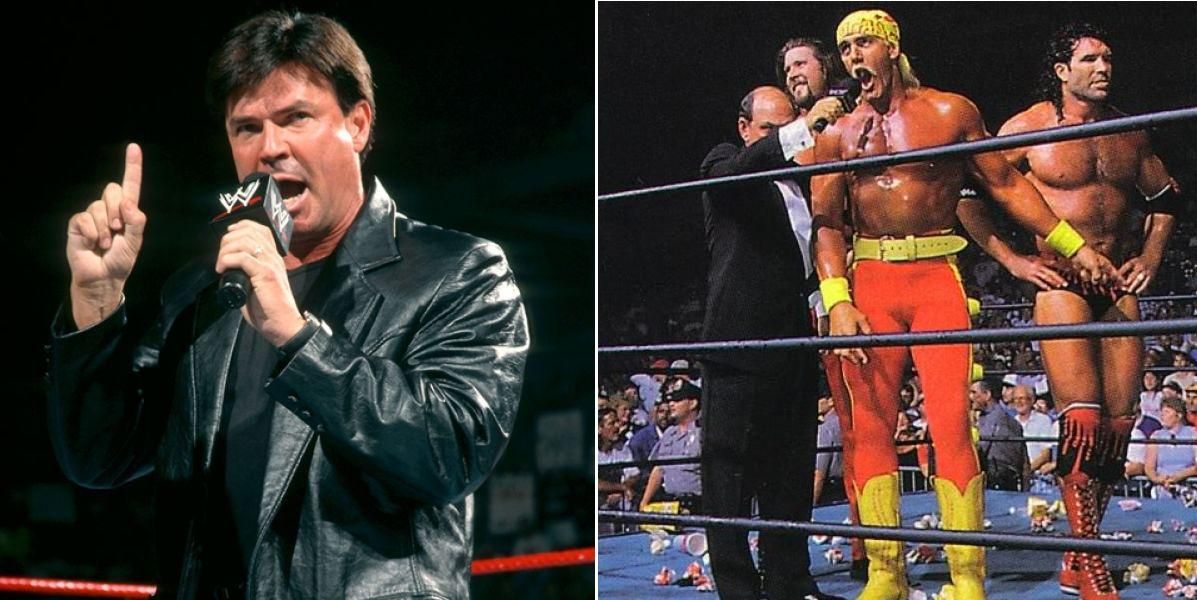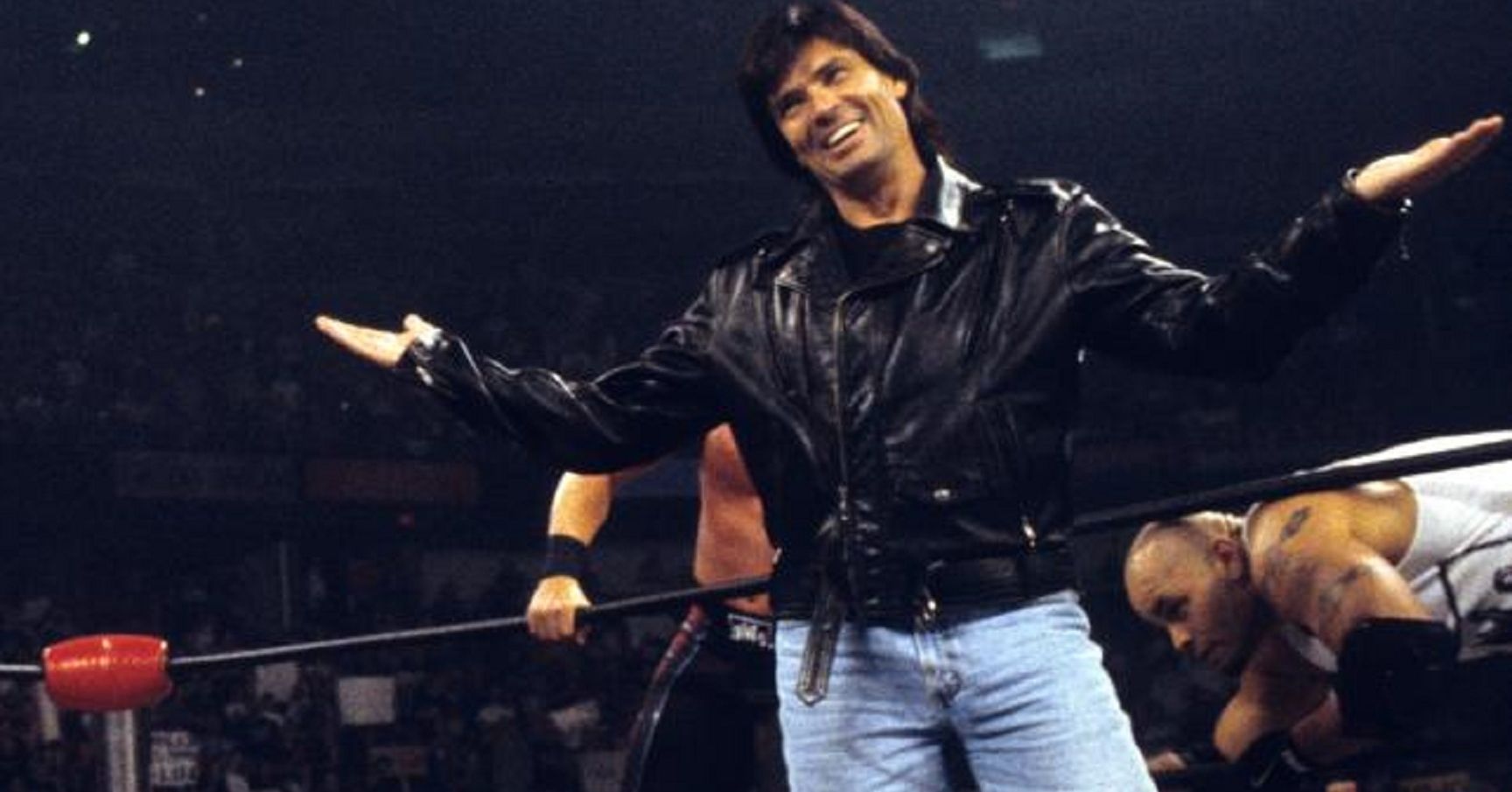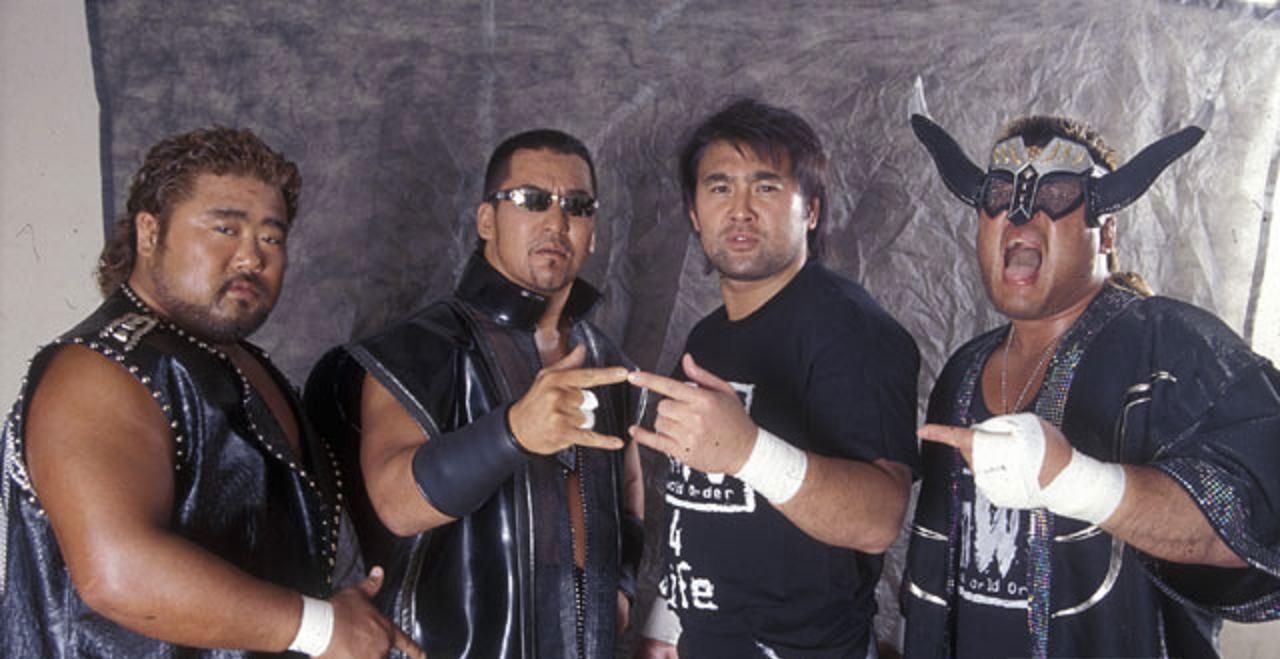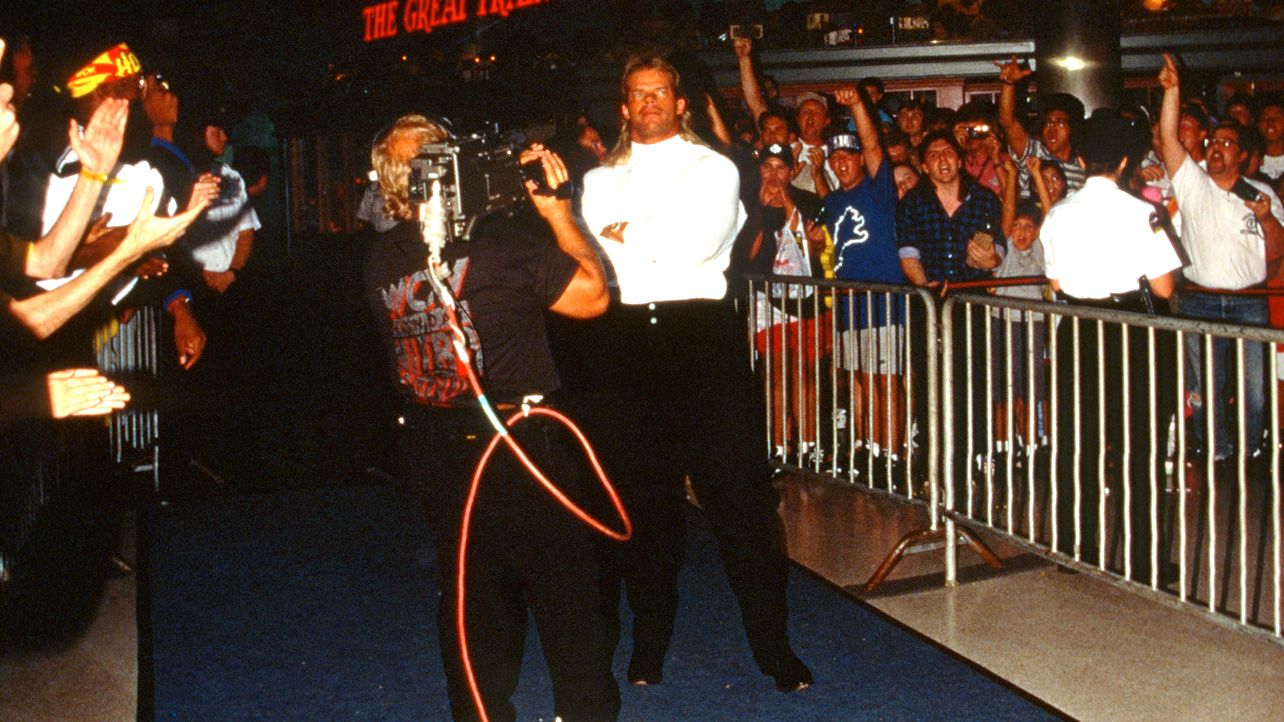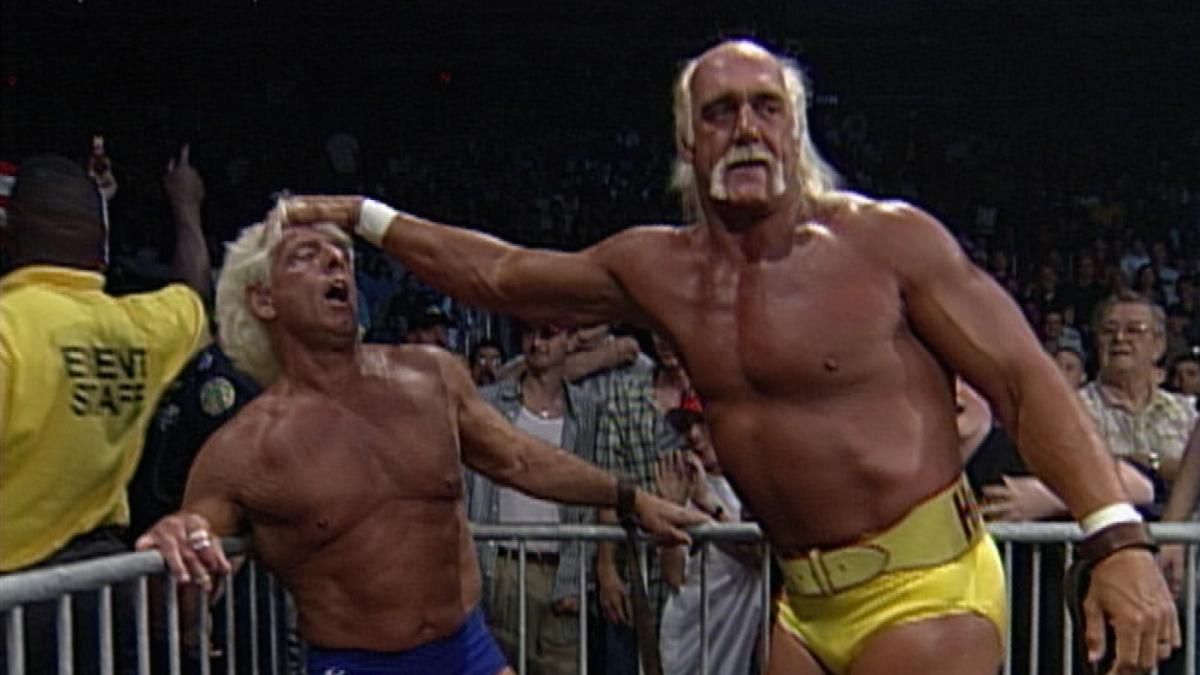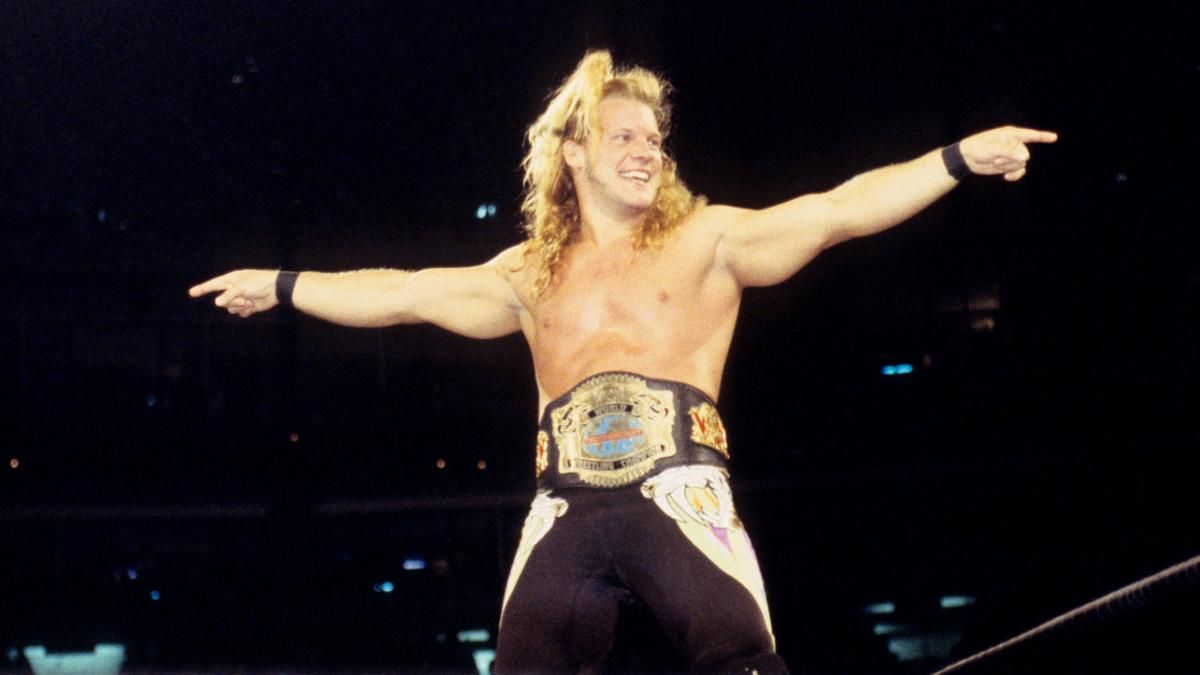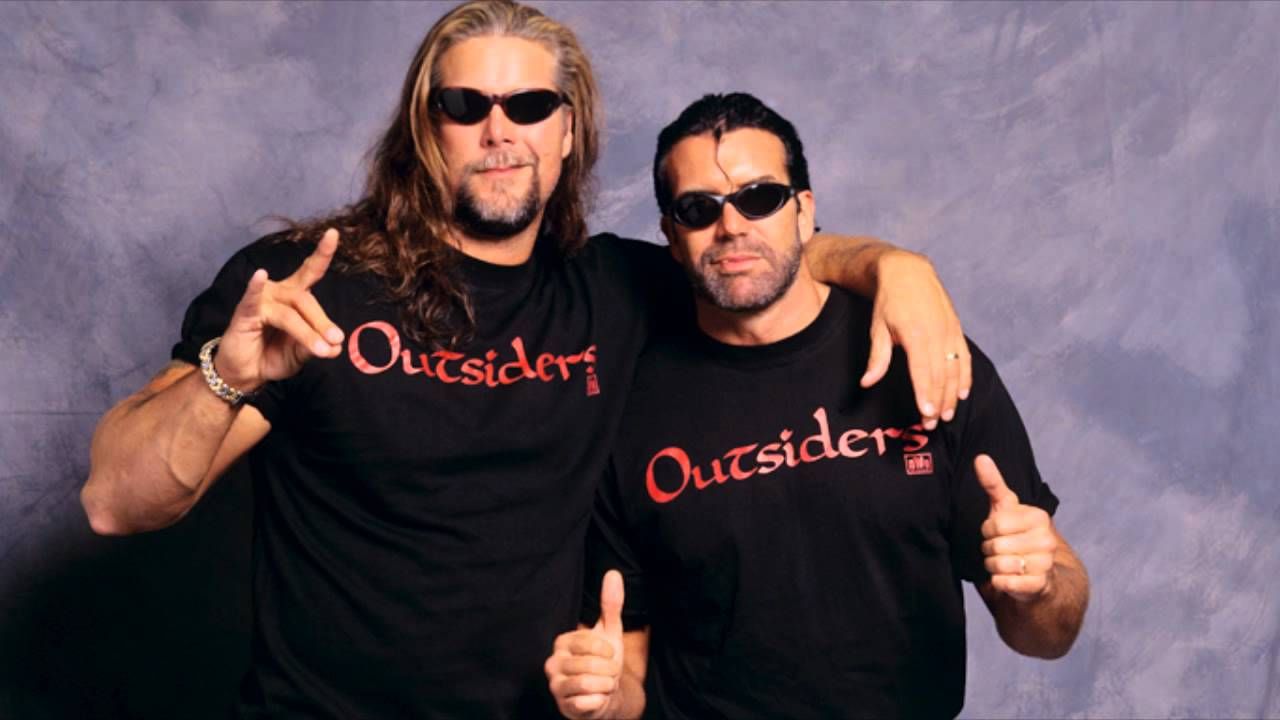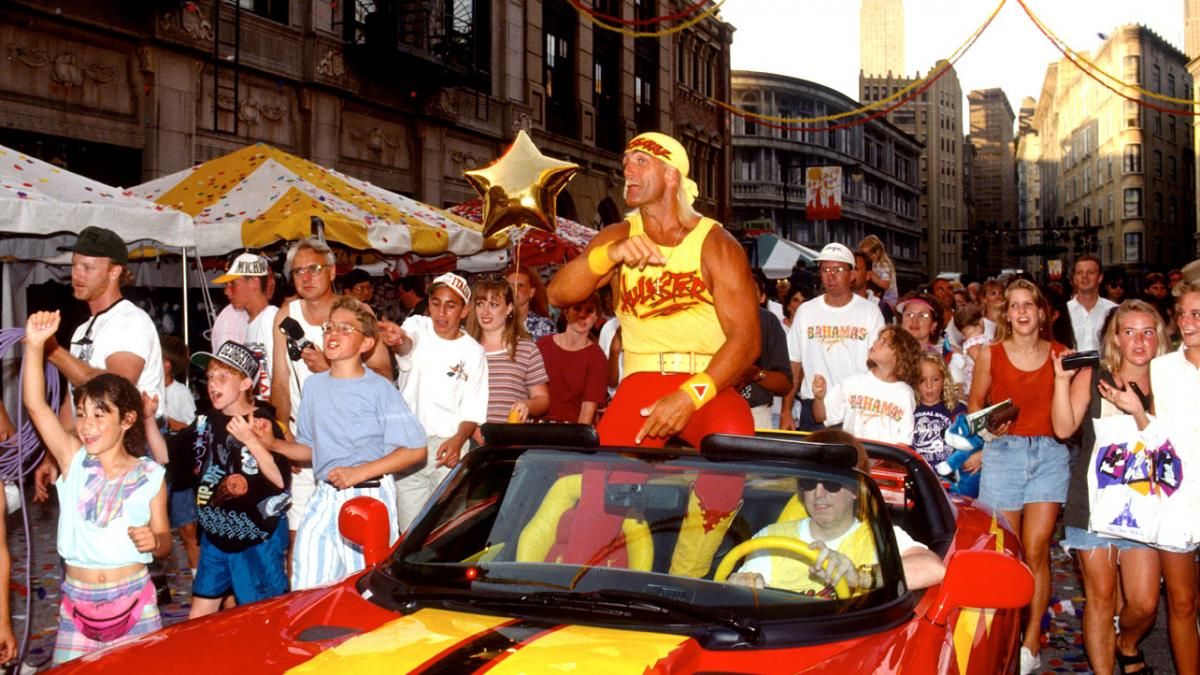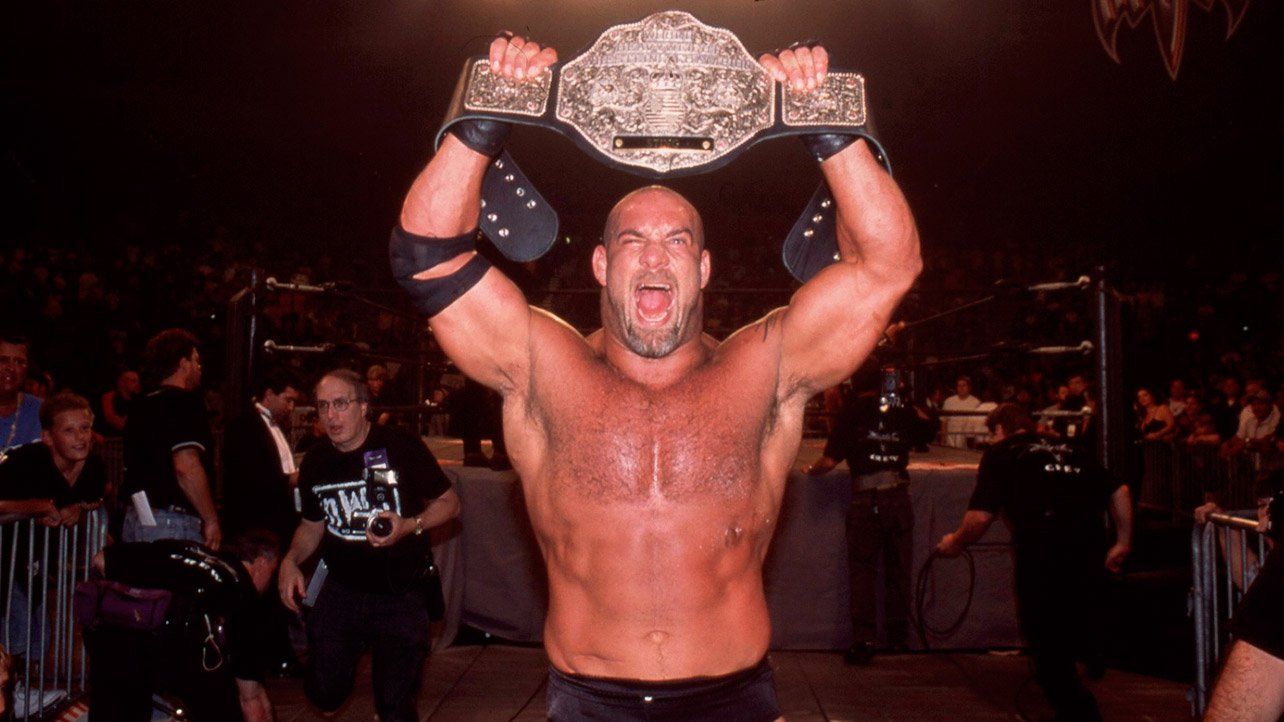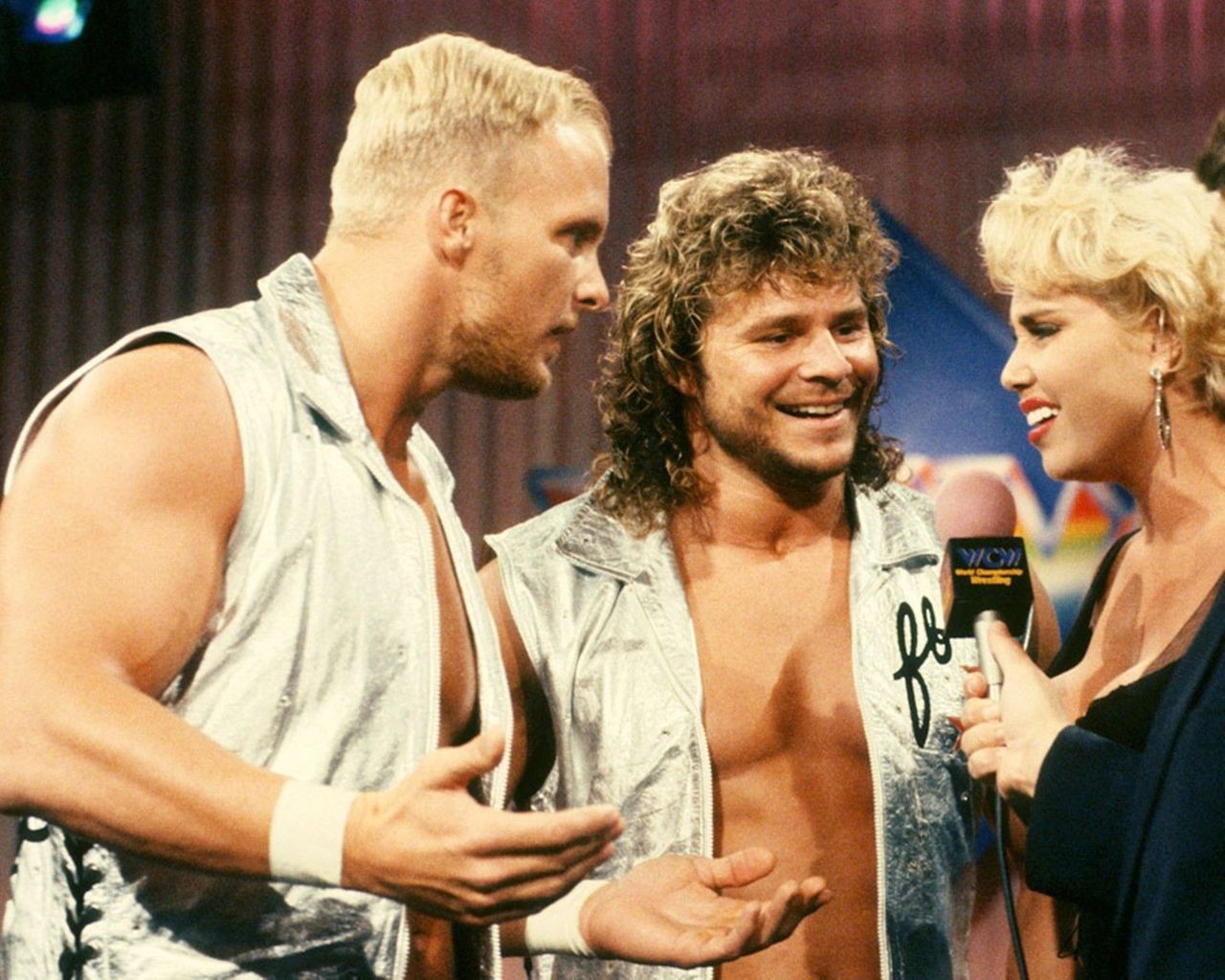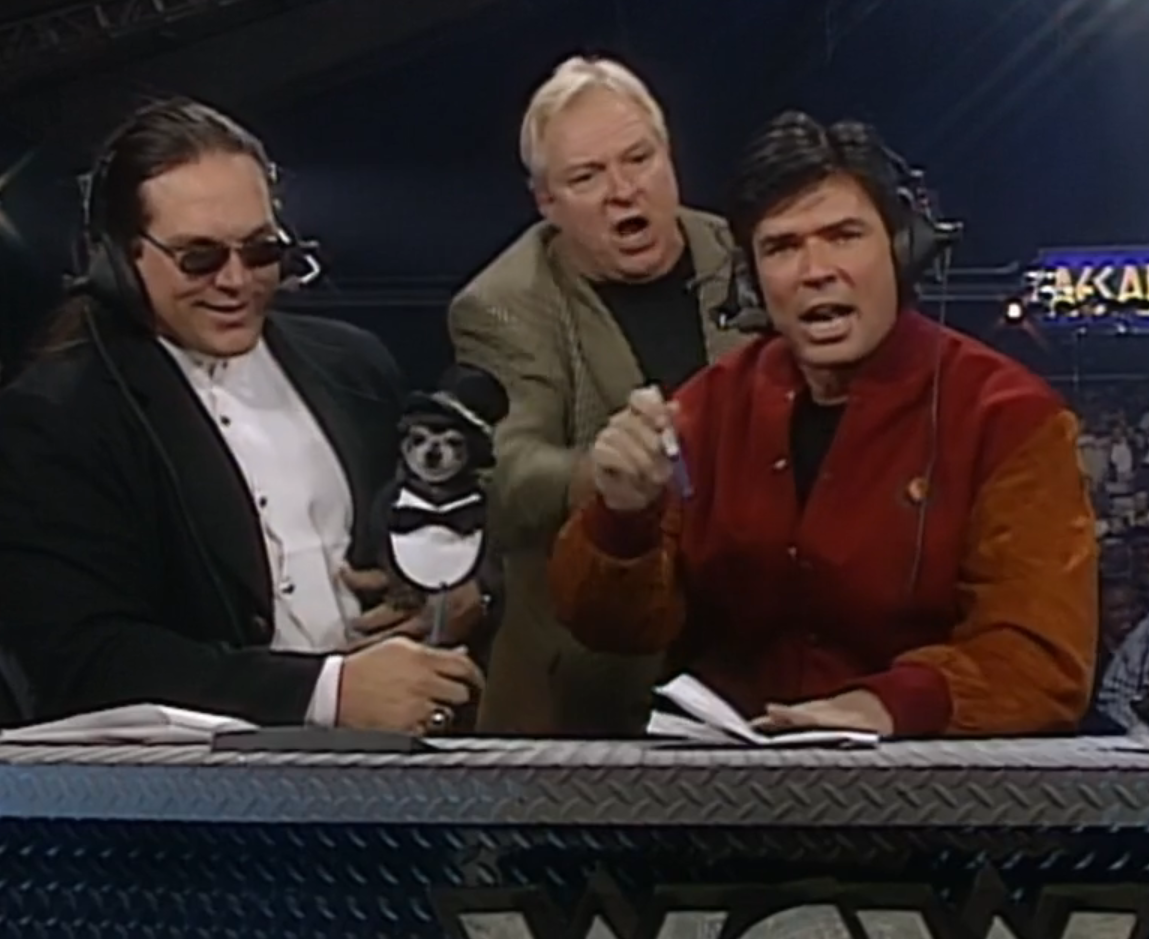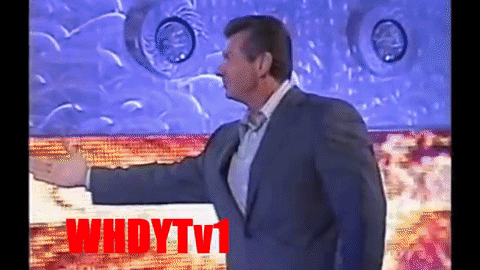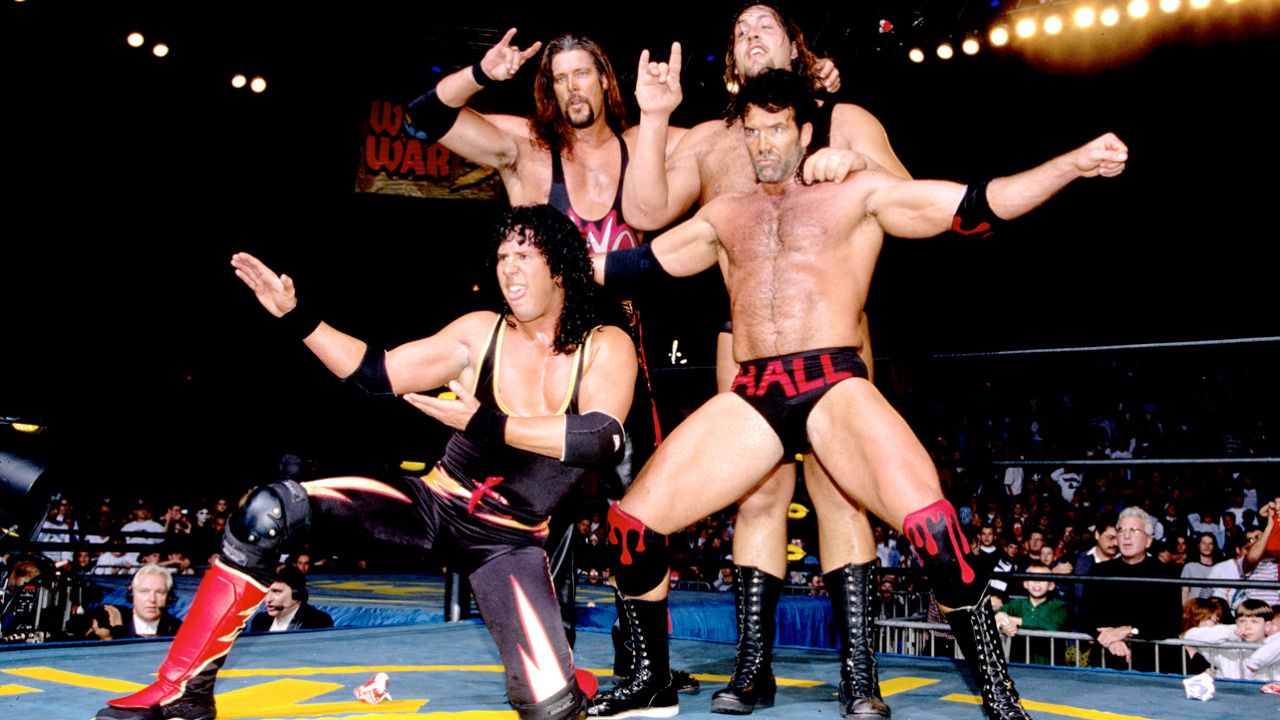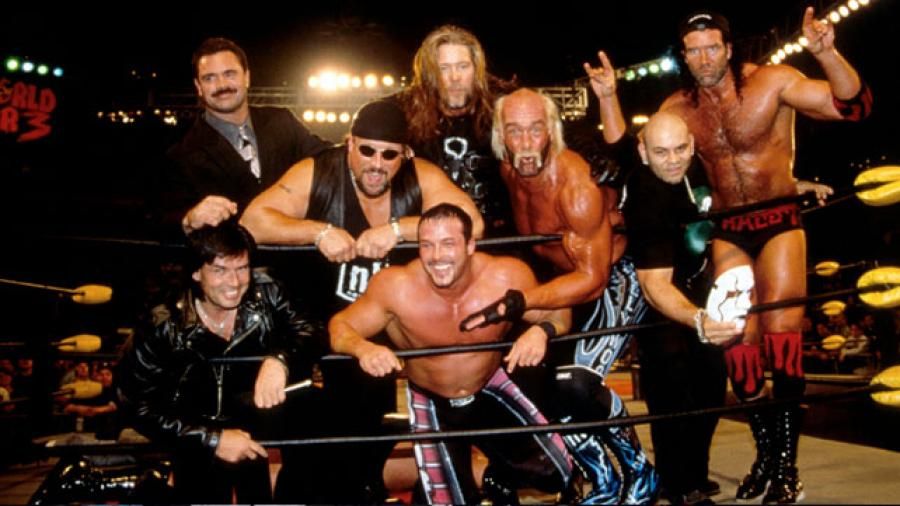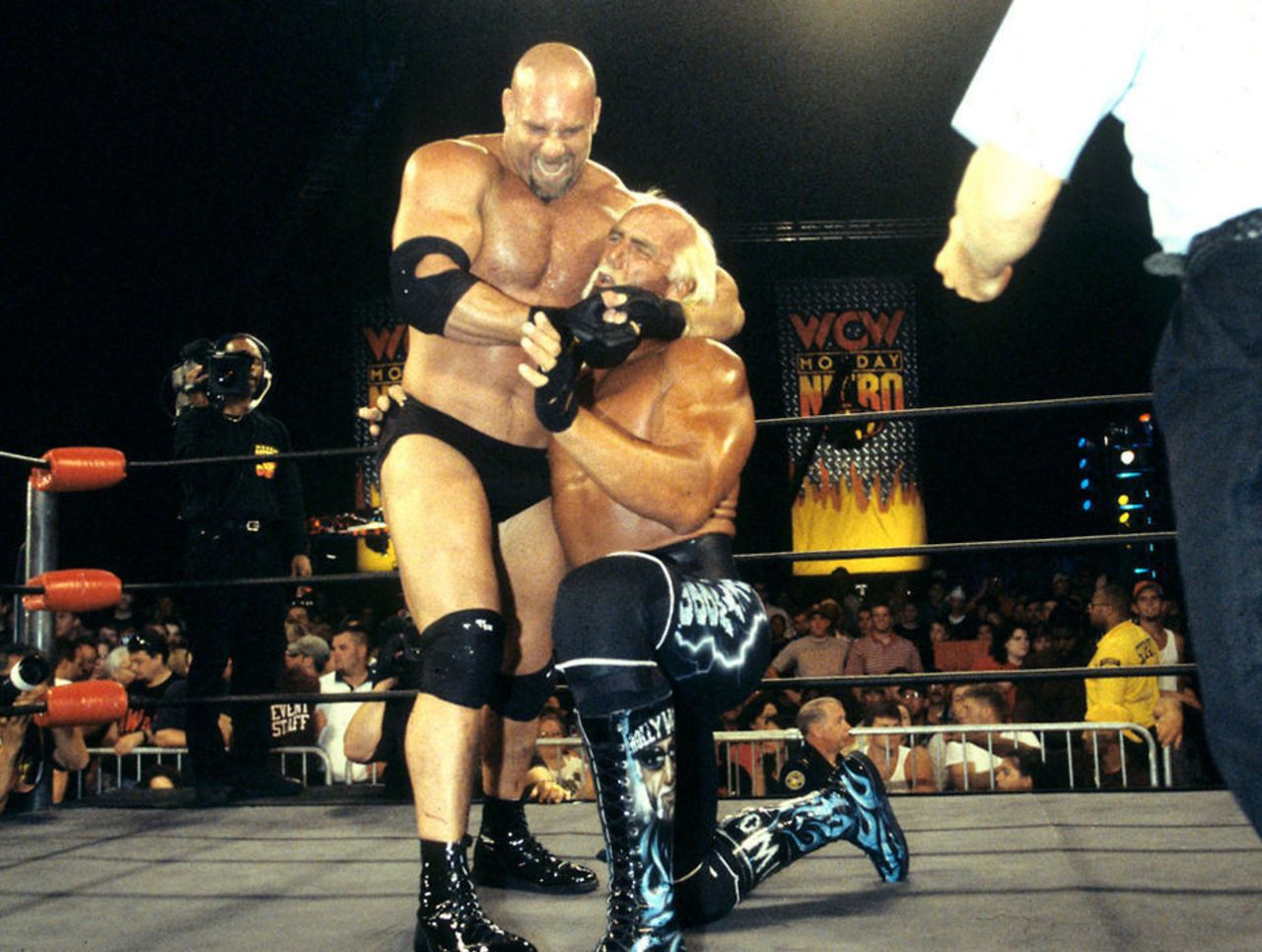In professional wrestling, the Superstars tend to get all the credit and the praise. This is natural since they’re the ones fans see on television on a consistent basis, but the writers, bookers, and other backstage roles that give creative input deserve proper credit as well. A perfect example of this would be the growth and development of WCW that changed it from its perception as a southern "Wrasslin" organization to the dominant wrestling product superior to the WWE and one that is credited in part to the direction, leadership, and vision of Eric Bischoff.
From his time as an announcer for the AWA promotion to becoming the president of WCW, Bischoff climbed up the ladder relatively quickly and it allowed him to make changes and book matches that would greatly help the wrestling industry. Some of those decisions include booking the big dream match between Hulk Hogan and Ric Flair, the Cruiserweight Division, and creating one of the all-time greatest factions in wrestling history. Though he’s not the nicest person in the world by any means, his contributions to this business did more to help it than it did to mess anything up.
So, to look into his contributions, this article will look at why Eric Bischoff’s actions helped to contribute to the wrestling business, and in some cases, saved it.
15 15. More Realism
One of the biggest reasons as to why Eric Bischoff helped save the wrestling industry is because he moved WCW and wrestling in general away from the cartoonish antics and characters that it had been associated with for the longest time.
Prior to the nWo, the majority of wrestling was a lot more campy and goofy. With the creation of the nWo, WCW had a storyline and a group that was mirroring something that fans could believe and get behind. Now this wasn’t a complete change as WCW still had their gimmick wrestlers like Glacier and others, but this was light-years ahead of what the WWE was doing with all the cartoon-esque wrestlers and gimmicks on their show such as Isaac Yankeem, DDS and Kama.
Under Eric Bischoff, WCW took steps forward, which it allowed them to get ahead of the competition and that influence of more realistic characters is still seen today.
14 14. Relationship With New Japan Pro Wrestling
Despite the ill will that WCW had with NJPW prior to Bischoff’s ascension, the relationship between the WCW and New Japan Pro Wrestling was maintained. As time went on, several NJPW talents would come over to WCW such as The Wild Pegasus (Chris Benoit), Black Tiger (Eddie Guerrero), Jushin Thunder Liger, and others. The relationship between WCW and NJPW benefited both companies tremendously with their perspective talents doing tours together as well as borrowing storylines and angles. The nWo invasion angle was borrowed from a NJPW invasion angle and NJPW borrowed the nWo concept to form nWo Japan, which did great for the overseas promotion in 1998.
Without Bischoff doing this, the relationship may never have been fixed between the two promotions and we would've missed out on a lot of classic moments.
13 13. The End of the 1st Nitro Episode
It’s no secret that when Hulk Hogan parted ways from the WWE, they were trying to have Lex Luger be the man that would take on some of his persona and fill his shoes. He was muscular from head to toe and had a patriotic character, so all he needed was his version of “Hulking up” and it would’ve been a blatant rip-off. It didn’t work all that well and Luger was unhappy with his standing in the company. This laid the groundwork for Eric Bischoff to steal him away.
On September 4th, 1995, the first episode of Nitro, the final match of the night saw Hulk Hogan defeat Big Bubba Rogers (Big Boss Man) to retain the WCW World Heavyweight Championship, but the most notable moment of the show was Luger appearing in one of the Mall of America aisles, making his presence known and asking for a shot at the title.
Stealing a big star from WWE was one thing, but to steal their replacement star as well was an emphatic statement and one the WWE still relives and glorifies today.
12 12. Booking Hulk Hogan vs. Ric Flair
WWE had the perfect opportunity to book a huge dream match for WrestleMania VIII between Hulk Hogan and “The Nature Boy” Ric Flair for the World Championship, but that match never came to fruition. Anyone hoping they would revisit the idea of these two men feuding were sadly disappointed as Ric Flair left the company a year later without so much as an inkling of a feud between Flair and Hogan. WCW didn’t make that mistake as they booked this match almost immediately after Hulk Hogan signed with the company.
This was one of the biggest matches in wrestling history and it helped greatly to put WCW on the map. Capitalizing on this opportunity did big business for WCW and got them that much closer to turning a profit with the promotion.
11 11. The Cruiserweight Division
During the early 90s, the style of wrestling most fans had been exposed to was a lot tamer than some of the styles being used in Japan and Mexico. With Eric Bischoff at the helm, he brought in various talents from all over the world and gave them WCW Monday Nitro as a platform to show off their incredible skills. This would lead to several wrestlers like Rey Mysterio, Ultimate Dragon, Jushin Thunder Liger, Eddie Guerrero, Chris Jericho and several other wrestlers to establish themselves in regards to American wrestling fans and become household names in professional wrestling. He even used the name Cruiserweight; which had never been used in professional wrestling until that point.
By Bischoff bringing these wrestlers into the fold, he showed that there was a market for smaller competitors. He wouldn’t be the one to tap into their potential as main eventers, but the exposure they got in WCW made them stand out that much more.
10 10. The Outsiders
Kevin Nash and Scott Hall were two of the biggest stars of WWE’s New Generation Era. Both characters were over and both had great gimmicks that the fans connected with. So when WCW wanted more fresh faces for their promotion, Eric Bischoff looked to bring in Nash and Hall.
When Bischoff managed to sign Nash and Hall, it could’ve been easy to have them simply show up on television and book them in matches. However, with Nash and Hall being brought in as an invading force from the WWE, this made WCW the must watch program between the two shows. Fans were interested to understand what was going on with The Outsiders and where this storyline was leading to. The weekly buildup to Bash at the Beach 1996 was epic and made The Outsiders look like legitimate threats, but their revealing of the third man changed professional wrestling forever.
9 9. Signing Hulk Hogan
For better or worse, Hulk Hogan is the biggest star in the history of professional wrestling. At his peak, his name meant instant viewership and intrigue from wrestling fans, and this was proven once Eric Bischoff brought Hogan back into professional wrestling as a member of the WCW roster. The move to the Disney-MGM Studios was already a big enough change to garner attention, but bringing in Hogan made WCW seem like a legitimate wrestling show. When Hogan was getting stale, he turned heel and put the wrestling boom into overdrive as a member of the legendary nWo faction.
Now, had Bischoff not signed Hogan, he probably would’ve returned to the WWE at some point and the entire company history would have never boomed the way it did. However, at the same time, Hogan has been known to play politics so there’s a very good chance that Hogan’s backstage antics could’ve deterred the growth of stars like Stone Cold Steve Austin and The Rock. Bischoff might have saved the WWE as well on this one.
8 8. Moved WCW to Disney-MGM Studios
When looking back at old episodes of WCW, the arenas used for the TV tapings didn’t look aesthetically pleasing. It had that classic look that most people found familiar from wrestling in the 80s, but that look was played out and gave off a vibe of being old or out of style. So in his continuous effort to change how WCW was viewed, Bischoff moved the production to the Disney-MGM Studios in Orlando, Florida. Having a wrestling show with big names was good enough, but to have it filmed in a theme park was a very innovative business decision.
This was initially a problem for WCW due to the TV tapings exposing storylines to fans, but that problem was resolved once the WCW began producing weekly live television through the fondly-remembered show WCW Monday Nitro.
7 7. Goldberg
As the nWo continued to grow and basically engulf the WCW to the point of lunacy, there needed to be opposing forces that didn't side with any of the nWo factions. Goldberg would become that force and would be booked as an unstoppable monster; in addition to being a homegrown Superstar. His slow rise to the top of the card showed the fans signs of a new star being made and their suspicions were confirmed when Goldberg fought Hulk Hogan for the WCW World Heavyweight Championship on an episode of Monday Nitro.
From his debut to the end of Nitro, Goldberg would remain a separate force from the nWo and would be one of the few fresh talents to get a push in WCW and become a star. Without Goldberg, the push for the older wrestlers would’ve probably been even stronger. Goldberg may not have been the most technical guy, but his presence was needed for the sake of the WCW brand.
6 6. Firing Stone Cold Steve Austin
Before Steve Austin became known as the foul-mouth, beer-drinking badass we know him as today, he was simply "Stunning" Steve Austin. During this time, Austin was in the mid-card either fighting for the United States Championship against Ricky “The Dragon” Steamboat or teaming with Brian Pillman as a member of The Hollywood Blonds. In 1995, Eric Bischoff would fire Austin from WCW; a year before WCW rose to the top of the industry. This would normally be a bad thing, but considering what Austin went on to do, it was for the best that Bischoff fired him.
Without firing Austin, he may have stayed in WCW and been held down by the incoming nWo, as many other wrestlers were. It was because he didn’t stay in WCW that he got to show his abilities in ECW which would be expanded upon in the WWE. It was by no means intentional, but had there been no Stone Cold, there would be no Attitude Era in the WWE. Austin’s destiny was far greater than the mid-card of WCW and that probably wouldn’t have been reached without Bischoff.
5 5. Turning a Profit With WCW
Many wrestling fans remember WCW as one of the all-time great wrestling promotions, but one interesting fact about it was that it wasn’t that profitable. There was money to be made in wrestling without a doubt, but WCW wouldn't become profitable until Eric Bischoff began to make changes to the company that would make them stand out and more like a modern show that fans, young and old, can enjoy. His rising through the ranks managed WCW to turn a profit in 1995, which was a year before the wrestling boom began. His changes that led to the wrestling boom helped to increase WCW’s profits to the point where wrestlers like Kevin Nash, Scott Hall, Hulk Hogan, and other big time names got to demand more money.
Now the money problems would eventually become their undoing with all the cash they had to give to older wrestlers, but without the changes in finances and creative direction, WCW may have not have been a factor in the wrestling business at all.
4 4. Greatest GM in Raw History
When WCW came to an end, most people though that it would spell the end of several writers and wrestling figures like Vince Russo and Eric Bischoff. However, when the brand split was created in 2002, Vince McMahon made a brilliant move, brought Bischoff into the fold and named him Raw’s General Manager.
This was a great move that made the brand split as iconic as it was. After the Invasion angle ended, many fans thought that the brand split would lead to more family drama with The McMahon's, but having Bischoff face Stephanie McMahon as General Managers made the split much more entertaining. His interactions with various wrestlers on the roster helped them to get over and made them look good. Whether taking a verbal lashing or getting his ass whopped, Bischoff’s role as General Manager might have been one of his greatest accomplishments.
3 3. Guaranteed Contracts for Wrestlers
One of the best aspects of WCW that helped improve the wrestling business was the guaranteed contracts for wrestlers. For the most part, wrestling organizations didn’t have guaranteed contracts for their in-ring talents, which meant that their money was based on their appearance, performance, and other factors that just didn't seem stable enough for a pro wrestler.
With Bischoff using guaranteed contracts, in addition to the reduced schedule, this enticed wrestlers to jump ship to WCW and bolster their roster. Over time, even the WWE adapted to this guaranteed contract for their wrestlers and this has greatly benefited the Superstars until this very day. Now instead of losing out on money after getting injured or being taken off TV, their money will come to them regardless of what happens or if they were going to be released.
2 2. The New World Order
Whether you like them or not, the nWo is one of the most influential groups in wrestling history. From The Nexus to the Bullet Club, people have been trying to recreate the magic of this legendary group and they haven’t to this day because of the entertaining and charismatic personalities of all three founding members.
Kevin Nash and Scott Hall turned a lot of heads as The Outsiders and brought a lot of intrigue to the WCW brand, but it was only when Hogan turned heel and gave the trio its name, the New World Order, that it really took off. They made the Monday Nitro episodes epic to the point where they had a two-year ratings advantage over WWE and drove them to the brink of extinction.
They did contribute to the decline of WCW, but their impact was greater than some of their faults. No matter what you think of them at the end, their beginning ushered in a wrestling boom the likes of which we'll never see again.
1 1. WCW Monday Nitro
As Eric Bischoff continued his process of improving WCW, he would be confronted by Ted Turner. Turner wished to be directly competitive with the WWE and asked Bischoff what it would take. Bischoff would then say that since the WWE was a show with two-hours in primetime, only a show going at the same time would counter it. This would lead Turner to make arrangements for WCW to get two hours of primetime on TNT for their show; known as WCW Monday Nitro.
This was one of the biggest reasons why WCW became the monster it was at its peak during the Monday Night Wars. Without creating Nitro, it’s likely that both companies would’ve just been doing average. But with that direct competition and ratings battles, both WWE and WCW had to give it their all to come out on top. Only the likes of Bischoff could of thought about going head-to-head with the WWE and, for that, his mind changed the wrestling business forever.
The show did get bad towards its end, but at the end of the day, it created a lot of memorable storylines, fostered a lot of creative characters, and left a legacy in wrestling that promotions today wish they could reach.

